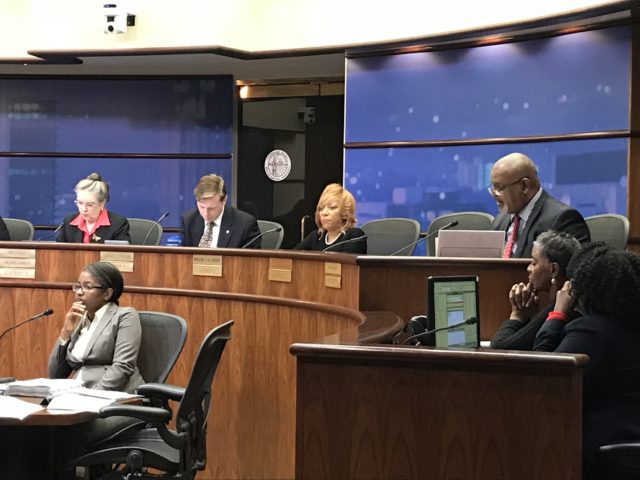
By Erica Wright
The Birmingham Times
Despite concerns over leadership and accountability at Birmingham-Jefferson County Transit Authority (BJCTA), the City Council voted unanimously on Tuesday to make the first of four quarterly $2.5 million payments to the transit agency.
The annual contract is for $10 million to be paid quarterly during the 2019 fiscal year for BJCTA to provide transit services on fixed routes and/or paratransit services.
At the meeting, Councilor Hunter Williams raised concerns about management, accountability and how the funds would be spent by MAX agency.
“I believe it was this week that the finance director was fired after it became known that in 2015 he spent nine months under house arrest for tax fraud and wire fraud . . . he had been in place at the BJCTA some time and now there is no finance director,” said Williams, “if we can continue to allocate money to you guys, how can we as a city be sure that that money is being properly spent in a way that best serves the citizens and taxpayers?”
Councilor Steven Hoyt also raised some concerns.
“I’m big on accountability… but obviously there’s a culture there and as long as I’ve known the transit authority, it has always had some drama, here or there, because they issue contracts . . . and whenever you have an organization that has that much influence on a city . . . you’re always going to have some drama going on.”
Chris Ruffin, the BJCTA’s interim executive director, assured councilors that steps are in place to monitor spending and hire a finance director.
He said the head of a Certified Public Accounting (CPA) firm is working with the agency and “will give us some intel about how we’re going to move forward . . . they are providing us help also, with our finances.”
Also, the funding agreement with the city requires that “we will provide total transparency with key performance indicators and . . . provide for [the council] documentation on how that money is allocated throughout our system,” he said.
Hoyt noted how much residents depend on the services. “I think if we’re going to be serious about transit, it needs to be funded and needs to be funded in the most expeditious way that we can do that,” he said. “That’s not withstanding accountability . . . we need to maximize our effort and fund you all properly.”
Councilor Wardine Alexander agreed.
“I support giving these funds to the transit authority because it’s our constituents that use these services, sometimes it’s a matter of income and sometimes it’s a matter of health, so we must have a solid and well-working transit system here in the City of Birmingham not only for entertainment and recreation, but for people’s livelihoods,” she said.
In other business, the council voted to enter an agreement with the Jones Valley Teaching Farm as part of the City’s Building Opportunities for Lasting Development program (BOLD) and will involve expansion of its Farm Fellows Apprenticeship program for Woodlawn High School graduates.
Mayor Randall Woodfin said the BOLD program changes “our whole strategy and vision around economic development … what we want to do is provide opportunity, particularly toward young folks on an apprenticeship track, and this is just the start,” the mayor said, “what I hope to see next year and beyond is more BOLD dollars given to organizations that provide apprenticeships like this.”
The apprenticeship program provides two years of full-time employment and eligibility is based on students’ successful completion of a paid two-year internship during their junior and senior years and attainment of their diploma.
The expansion project will cost $82,000 and will allow the farm to hire three new apprentices or two new apprentices and an Apprentice Coordinator for one year.
Councilor Darrell O’Quinn and Hoyt also pledged an additional $10,000 (each) for the program.
“I think it is a tremendous service to the City of Birmingham and I really was excited when I read about this particular project . . . and I can’t wait to see the fruits of this labor,” O’Quinn said.



